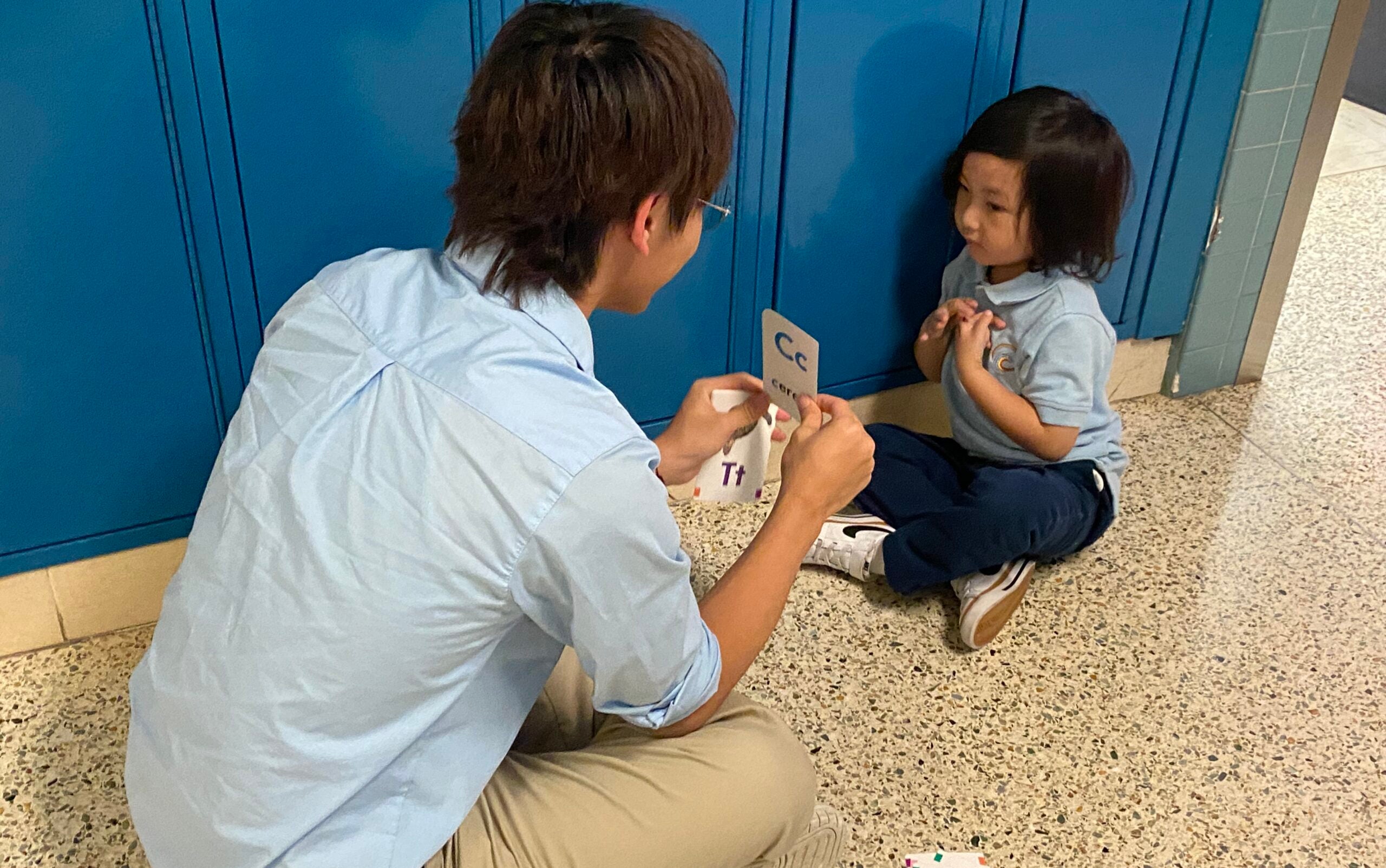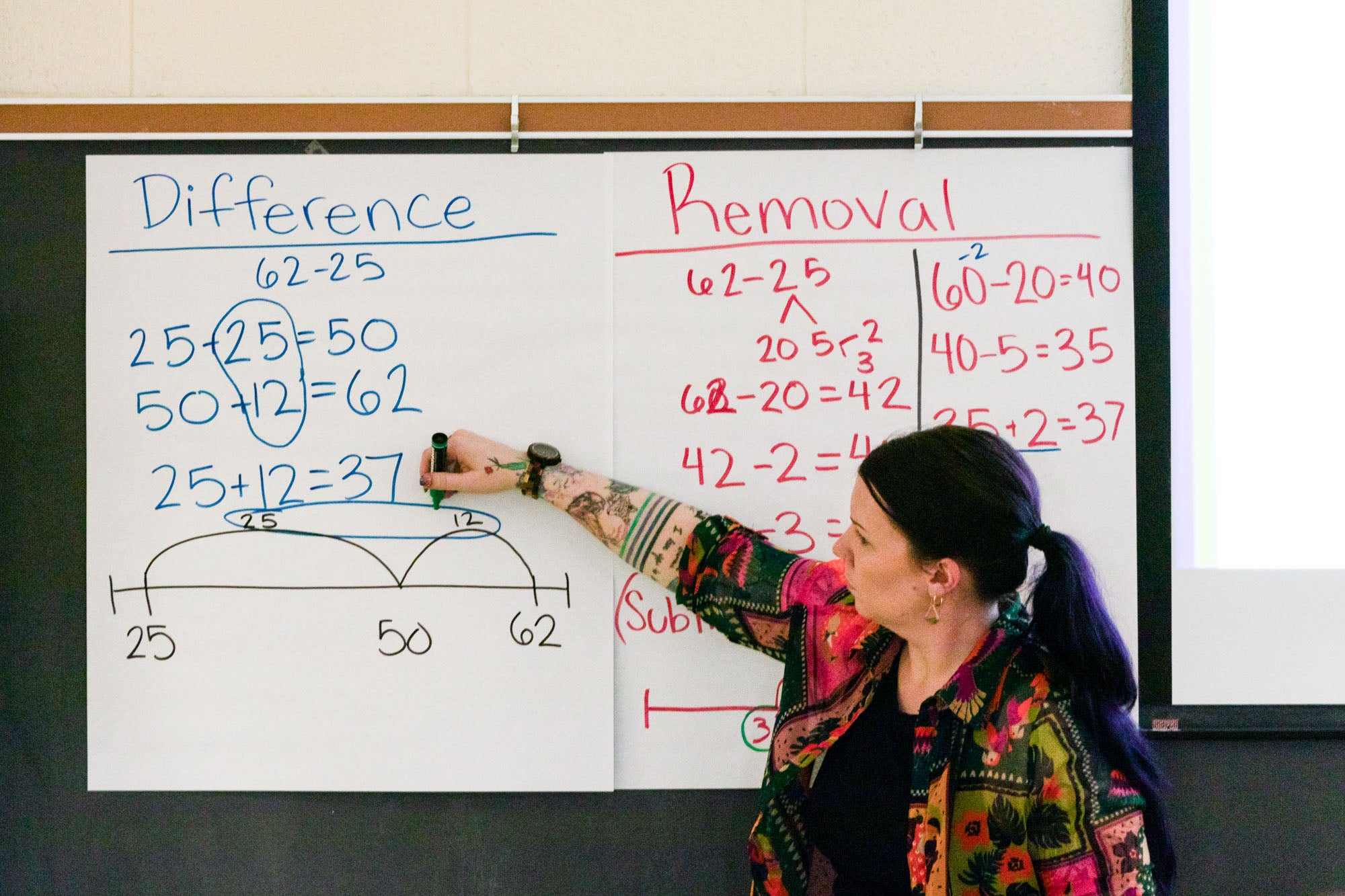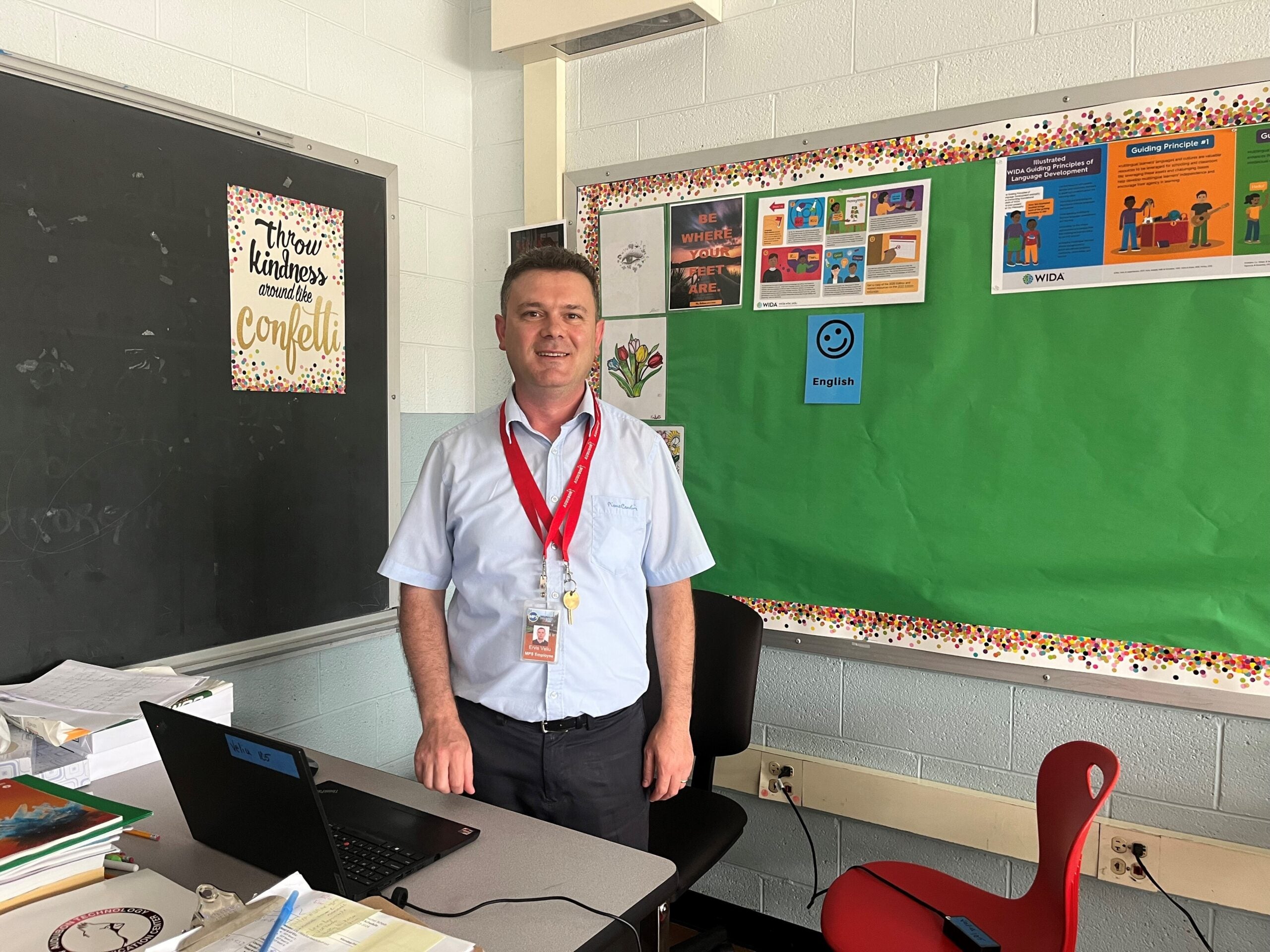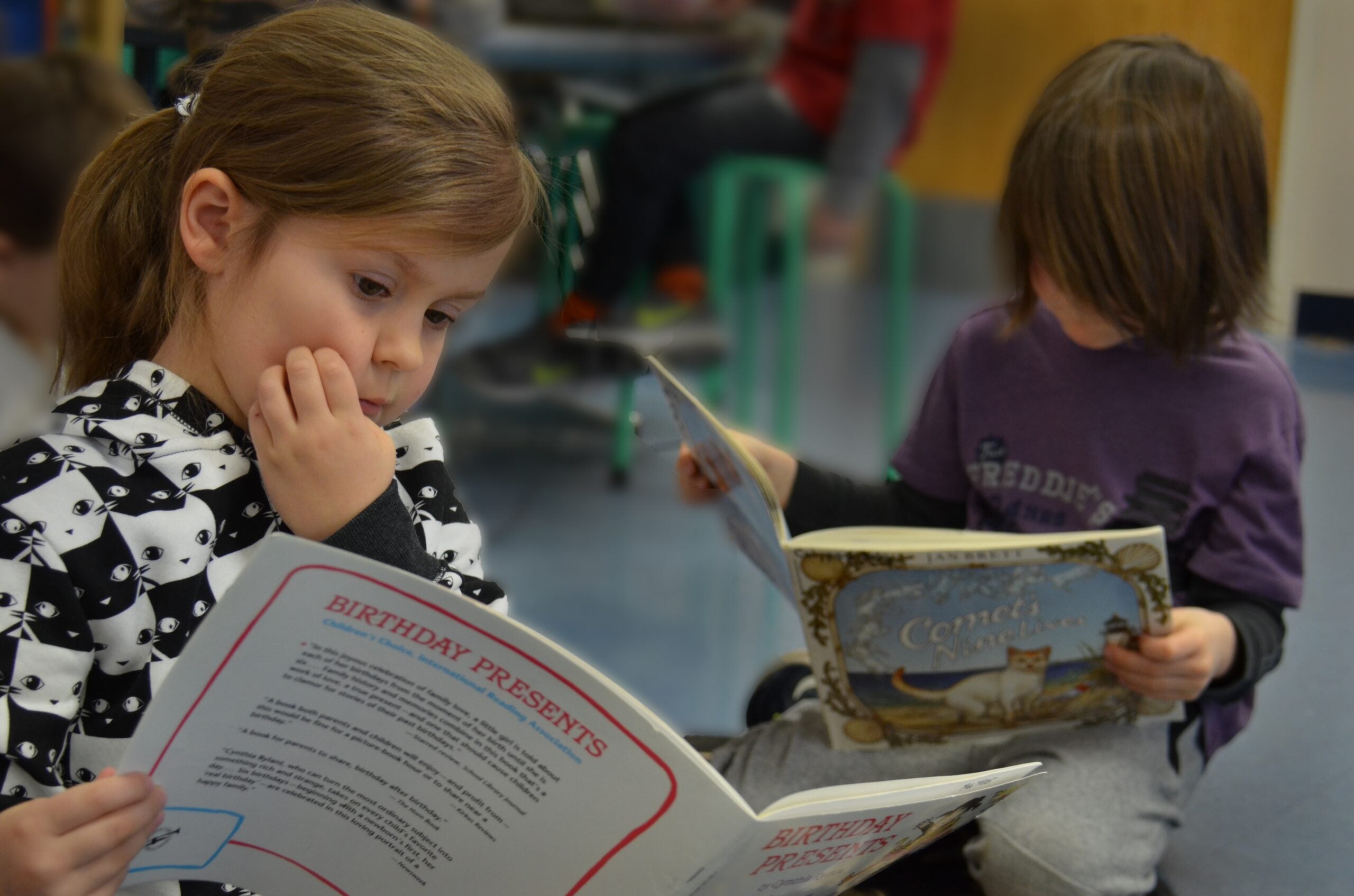The University of Wisconsin-Milwaukee and a local charter school are launching a new program organizers hope will help address an ongoing teacher shortage in Milwaukee.
The college’s School of Education and the Hmong American Peace Academy, or HAPA, recently announced the new program to help HAPA high school students enter the education workforce. The program will allow the charter school’s students to take classes for college credit and offer scholarships for students who pursue an education degree at the university.
Schools nationally and in Wisconsin are having trouble finding teachers. The Milwaukee Public Schools district started the school year with about 78 teacher vacancies and the same number of open positions for paraprofessionals, according to chief school administration officer Michael Harris.
News with a little more humanity
WPR’s “Wisconsin Today” newsletter keeps you connected to the state you love without feeling overwhelmed. No paywall. No agenda. No corporate filter.
At HAPA, there’s also a shortage.
“Teacher shortage is one of our main concerns,” said Chris Her-Xiong, founder and chief executive officer of HAPA. The new “Grow Your Own Program,” will make it easier for interested HAPA high schoolers to eventually earn an education degree at UW-Milwaukee. Her-Xiong hopes some of those students will later return to HAPA to teach.
“We wanted to grow our own so that we can increase the opportunity to get teachers into our building, so that they could then impact the lives of our young people,” Her-Xiong said.
Wisconsin is home to one of the largest Hmong populations in the nation, with 62,331 Hmong residents according to a 2020 report. HAPA enrolls nearly 2,000 kindergarten-through-high school students, over 90 percent of Hmong descent.
Her-Xiong, who is Hmong, founded HAPA after working as a teacher at Milwaukee Public Schools for over a decade. She said another motivation behind the program is to provide students with teachers who look like them.
“It’s important for the teacher who’s standing in front of the class (to) look like the student body, and that can understand the culture, and more importantly, then, can bring the students’ culture into place,” Her-Xiong said.
Andrew Davis, the head of the School of Education at UW–Milwaukee, said he hopes the program can help build more diversity in the field. Wisconsin’s teachers are overwhelmingly white and predominantly female, according to a 2022 report.
“We would like to help Milwaukee city schools diversify their teacher pipeline,” Davis said. “We know that there are a lot of benefits to having a diverse teaching workforce … And we also think that students are more likely to become teachers in the future if they see themselves from an early age reflected in their teachers.”
The program will offer HAPA high schoolers classes they can take for UW-Milwaukee credit.
“It also helps lower the cost of college for parents and for the students themselves, because they’re getting college credit while they’re in high school,” Davis said.
If the students decide to pursue a teaching degree at UW-Milwaukee, they can get a scholarship, up to $4,000. While pursuing their degree, the students can also student teach at HAPA, as some education majors currently do. And after graduation, students in the program can get a job interview at HAPA.
About 83 percent of HAPA students are economically disadvantaged, according to the state Department of Public Instruction. The most recent department report card shows twice as many HAPA students are scoring at the proficient or advanced level in English and Math compared to Milwaukee Public Schools.
“We’re educating the second generation of those that have graduated from us,” said Her-Xiong, who opened the school in 2004. “They’re sending their children back to HAPA … that is a privilege and an honor.”
Kaying Xiong, who is Hmong, said she thinks the program is a great idea. After her family fled to the U.S. as refugees, she started elementary school in the Eau Claire Area School District. Years later, Xiong went on to teach at the same school, and later became an administrator there.
“This is where I grew up and raised my family, and I am passionate about making a difference here for the children in this community,” said Xiong, now the executive director of Student Services and Special Education at the Eau Claire district.
Xiong thinks the UW-Milwaukee and HAPA program sounds promising.
“I don’t know the logistics and the details of how it’s going to launch, but I think anything we can do today to A: encourage more people to go into the teaching profession, and then B: to encourage marginalized groups to go into education, that’s just awesome. You can’t go wrong.”
She said the education field is “hurting for good staff.” And she’d be excited to see more diverse teachers.
Xiong said programs like these are important not just for Hmong students, but for any child of color.
“For them to be in this school environment where the adult population represents who they are as well, is just so affirming, and it just so does so much to the psyche in terms of learning and growing in that environment.” she said. “For all populations, I think it’s super important.”
Wisconsin Public Radio, © Copyright 2025, Board of Regents of the University of Wisconsin System and Wisconsin Educational Communications Board.







